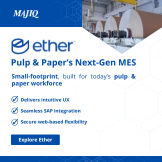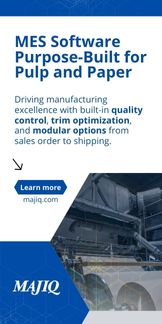In my recent work travels I seem to be noticing a lot more "things" than I ever have in the past. Perhaps it's because I now write about various topics and constantly need more ideas. However, one of the "things" I've been noticing more and more lately...I've been hearing about for decades. As the title of this month's column suggests, the major "thing" I've noticed is a rapid increase in how many people that have decided to call it a career and move on to the next stage of life. Yes, if you've invested regularly over the last several decades, those investments have performed nicely. Have we ever seen such sustained gains in stock market value like we have since 2009? I'm sure those who took advantage of that trend would have enough principle to comfortably live off the future gains or dividends. Why not leave the drudgery of a regular workplace if it is financially viable?
As more and more people age out of the workforce, what does that leave for us folks who have to keep the invoice printer spinning? How much knowledge and experience will no longer be available when production goes sideways? Are we capturing the tribal knowledge of all the people who've "been there, done that"? As most readers of Nip Impressions know about our industry, it's not just science, engineering, and SOPs that keep these systems churning out more and more paper-based products. There's an art to it as well. People who have been in the trenches for 30-40-50 years have undoubtedly seen it all. They know what works and what doesn't. They know how to fix things and how to circumvent other things. They got it done, time and time again.
I've recently encountered back tenders who look younger than my own kids. Machine tenders who may have never dialed a rotary phone before. Superintendents that have not cut their teeth through every production or maintenance department. On two occasions in just the last month, I've chatted with managers who've announced retirements but were swayed back to their old jobs or gained more responsibility with lighter workloads or aggressive pay increases. It's an exodus that is going to be tough to manage. The job hopping from company to company and site to site to fill these voids is going to be massive. That presents opportunities for many younger folk, but are they ready?
In parallel to these retirement encounters, I've also run into a few paper machine automation systems that I was privileged enough to be a part of the installation team in the early '90s. They continue to operate as they had for nearly 35 years! Yes, those systems are slow compared to modern tech. Yes, it's harder to find replacement parts. Yes, the wiring and boards look big and ancient. However, those systems continue to get the job done. Just like many of the human resources that are leaving the workforce. I think the two situations are highly related. Who is going to keep 20- or 30-year-old systems running? It's the silver crowd that took great pride in uptime and ever-increasing production and quality. As they walk out the door, these systems will have to be replaced without proper caretakers. With what? Sure, modern tech will be able to handle it, but for how long? Imagine trying to keep a modern smart phone for even 10 years! Today's systems depend on modern PCs and software that becomes obsolete in half or even a quarter of the time as the systems I cut my teeth on. I think this topic is going to be very interesting to see how it plays out. Maybe it will be advanced algorithms and AI that pick up the slack. We all know it won't be a vast crew of new recruits showing up for apprenticeships. The younger generation doesn't seem to be attracted to old industries. Or hard work for that matter. I see some younger people occasionally that impress me with fortitude, but it's rare.
What can we be doing now that helps our human resource situation in the next 5 to 10 years? What we cannot allow to happen is unprepared people put into leadership roles. Our environment on the factory floor is dangerous - we cannot allow people to get hurt. That should be priority number one. We also can't allow investment capital to be destroyed with bad projects or we won't be able to attract capital against sexier industries like pharma, tech, or any other shiny thing that attracts investor's attention. Who notices paper like all the readers of this column? Nobody. They open their boxes, blow their nose, and shun books without even thinking about all the resources it took to deliver those items into their hands. It's not like I long for the typewriter, or phone operator, or horse whips to live my life. I know technology advances at breathtaking speed and the rule of the jungle is adapt or die. However, this industry is not going anywhere. There is a tremendous demand for our products and processes that deliver those products. It just won't be newsprint or book stock or stock certificates.
I want to close out this column with my sincerest congratulations for all those who have managed to make it to retirement. People who dedicated decades to this industry and managed to put away enough resources to stop working a day job. I'm sure they earned their right to take it easy for once. Or perhaps pursue another hobby or money-making venture. I'm sure many are capitalizing on their decades of experience to consult, mentor, and train newbies. Maybe take on short-term assignments to put out dumpster fires that are all around us. Whatever their futures hold, it's been a privilege to watch you get it done (and learn a few things along the way.) None of us know what our futures hold, but speaking from personal experience, I feel I have learned from the best, and continue to do so. What I also take pride in doing is looking at the younger generations to guide them into spectacular careers in the industry. I also continue to look for talent and initiative so I can sleep at night knowing there are people at the wheel that deserve to be there. I'll certainly miss daily/weekly/monthly engagements with those who retire, but there is a need for guidance of those coming up into bigger roles. Let's collectively support them so they don't run away screaming at the long hours, hot & wet work environments, and head-scratching occurrences on these big assets.
Steve Sena (stevesena@me.com) is a Cincinnati native. He obtained degrees in Paper Science & Engineering from Miami University in Oxford, OH and an MBA concentrating in Economics from Xavier University. He's worked for a broad array of leading producers, suppliers, and converters of pulp and paper grades.






















